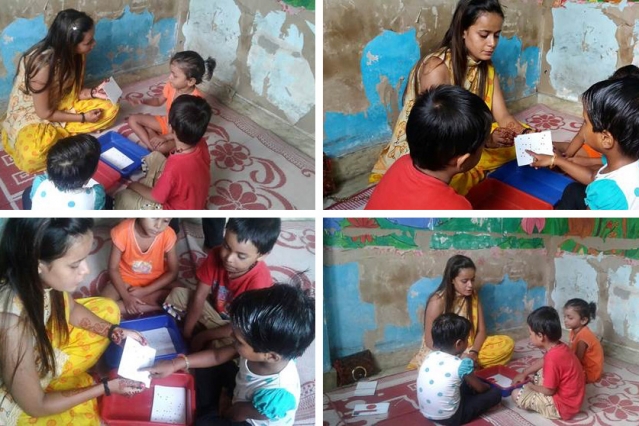TEACHING AND LEARNING
Preschoolers learn from math games — to a point

What is the best way to help poor schoolchildren succeed at math? A study co-authored by researchers at MIT, Harvard University, and New York University now sheds light on the ways preschool activities may — or may not — help children develop cognitive skills.
The study, based on an experiment in Delhi, India, engaged preschool children in math games intended to help them grasp concepts of number and geometry, and in social games intended to help them cooperate and learn together.
The results contained an unexpected wrinkle. Children participating in the math games did retain a superior ability to grasp those concepts more than a year later, compared to children who either played only the social games or did not participate. However, the exercises did not lead to better results later, when the children entered a formal classroom setting.
“It’s very clear you have a significant improvement in the math skills” used in the games, says Esther Duflo, the Abdul Latif Jameel Professor of Poverty Alleviation and Development Economics at MIT and co-author of the study. “We find that the gains are persistent … which I think is quite striking.”
Suggested links